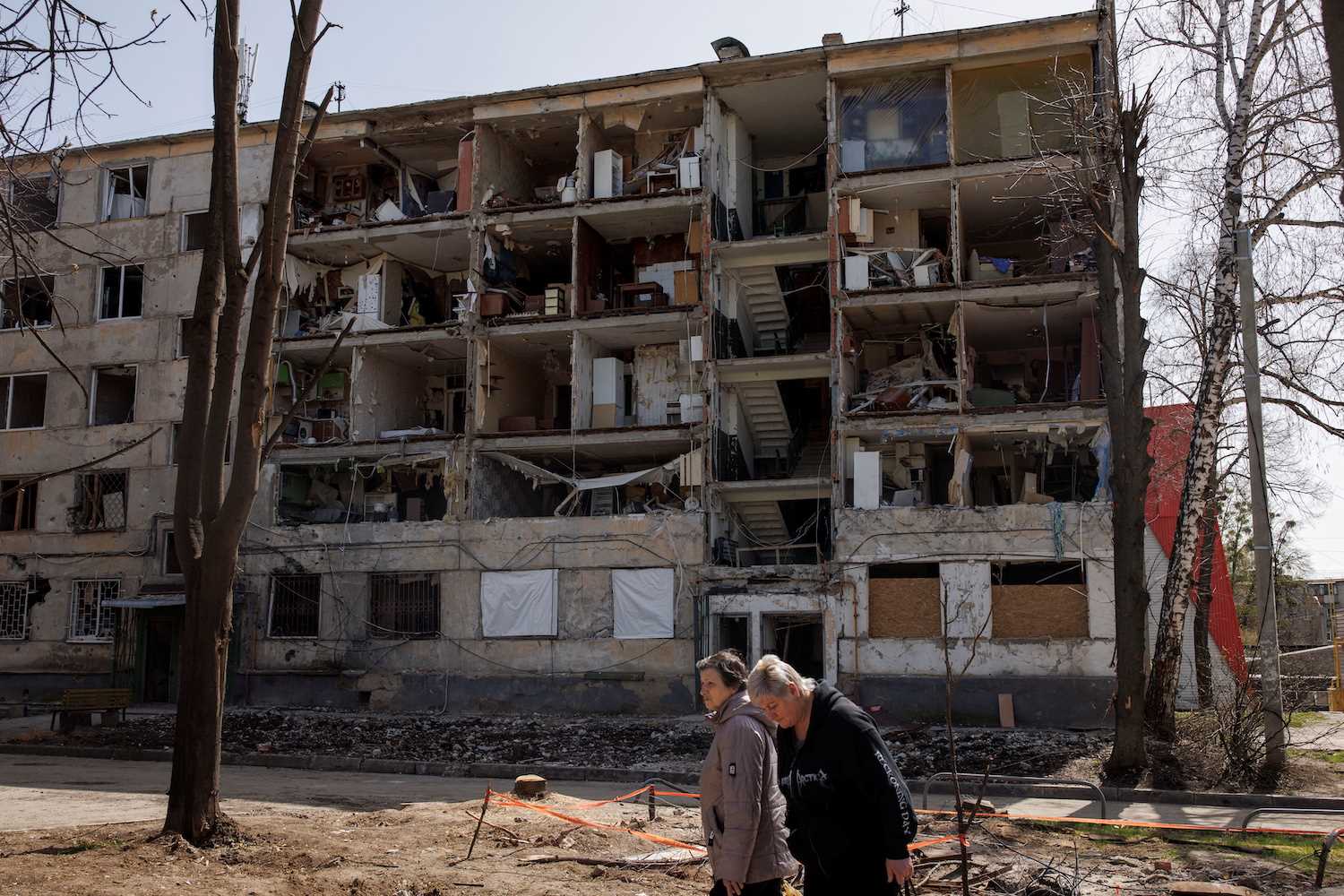By Greg Oxley, of the French Marxist website – “La Riposte”.
This document is written as a contribution towards a genuine discussion on our political approach to the Russo-Ukrainian war, from an internationalist and revolutionary point of view. It will discuss the validity of some of the slogans and demands being put forward by the European left.
If the groups mentioned by name – the Communist Party of France (PCF), Mélenchon’s France Insoumise and Die Linke in Germany – are few in number, the positions mentioned are widespread in left-wing parties and union organisations on the continent.
The main points examined concern the relationship between diplomacy and war, the role of the United Nations (UN) and the Organisation for Security and Cooperation in Europe (OSCE). It considers the demand for a ceasefire and a negotiated solution, the delivery of weapons to Ukraine, the class nature of the war and its implications for internationalists, and finally the question of fascism, which served as a pretext for the invasion of Ukraine.
War and diplomacy
The national secretary of the PCF, Fabien Roussel, sees the Russo-Ukrainian war as a calamitous event. He calls for a “political settlement” of the war “under the aegis of the UN”. Similarly, Jean-Luc Mélenchon, the leader of France Insoumise, would like diplomatic negotiations to take place within the framework of the OSCE. In Germany, Die Linke has taken a similar position, calling for the initiation of a dialogue “in a format like that of the OSCE between Russia, Ukraine, the EU and all other European states.” Such positions are quite widespread on the European left. Virtually all left-wing groups on the European continent insist on the idea that, for them, diplomacy – discussions between belligerents, involving their respective allies – is preferable to war.
This is a general idea that most people would probably agree with, in the abstract. However, the realities of the current war are such that a negotiated solution to the war is completely utopian. If diplomacy was enough to reconcile the interests of Russia and Ukraine, the war would never have started in the first place. According to Clausewitz’s well-known definition, war is simply “the pursuit of diplomacy by other means.” In other words, war only becomes a necessity when diplomacy – in which, let us not forget, the threat of possible recourse to violence is an essential element – is faced with situations in which compromise is impossible.
Let the enthusiasts of the “diplomatic path” explain how diplomacy could ever have satisfied Putin’s objective – the conquest and military occupation of Ukraine, the violent repression of all Ukrainian resistance, and the plunder of resources of the country for the benefit of the Russian oligarchy – and that of Ukraine, which is opposed to this. This is clearly impossible. There is only one way to achieve Putin’s goals, and that is by war. The same goes for Ukraine. A diplomatic compromise is out of the question.
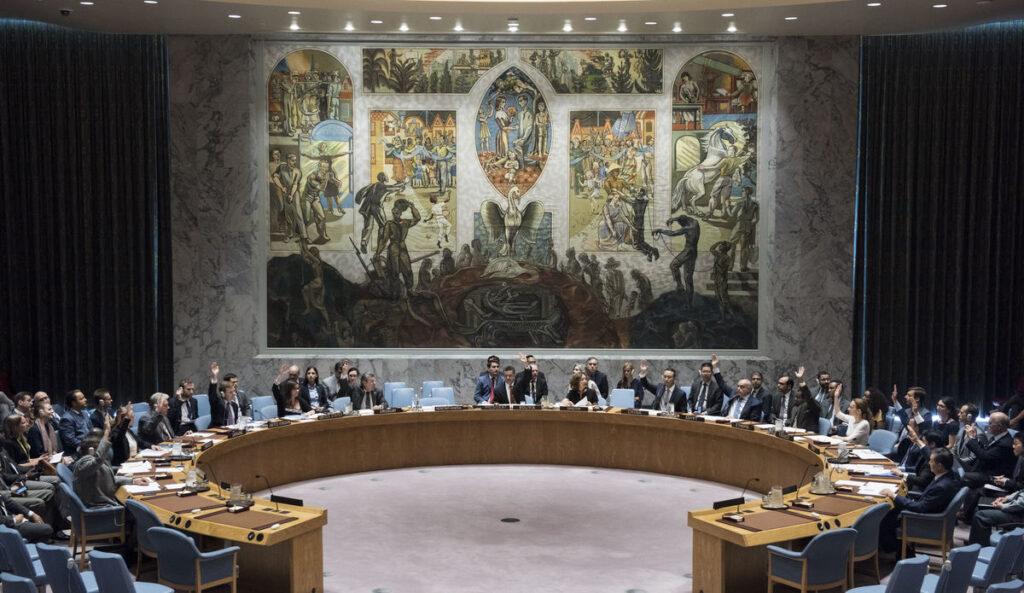
There is something rather astonishing about the fascination the UN exerts on the leaders of the European left. Let’s take, for example, the case of the leadership of the PCF. For decades, it has consistently advocated using the UN to end wars. The world is ravaged by the rivalry between the great imperialist powers which dominate the UN. It is precisely the struggle between these powers for the control and exploitation of the planet’s resources, for the defence and extension of their strategic positions, that wars and other forms of violence take place in different parts of the world. Was this not the case with the wars in Afghanistan, Iraq, and Syria, to mention just a few examples? And this is also the case in Ukraine today. And yet, for some people, it seems that when these same rapacious powers are brought together under the banner of the United Nations, they are transformed, as if by magic, into a force for peace and justice in the world!
The UN is an institution controlled by the imperialists and acting exclusively in their interests. When the interests of rival powers coincide, agreements on this or that issue are possible. But when they do not coincide – and this is clearly the case in the Ukrainian war – the issues between them are settled by force and, if necessary, by war. The UN has never been able to prevent a war when the vital interests of the great powers are at stake. Indeed, it has organised several wars, military occupations and deadly embargoes. On this last point, we should never forget that embargoes – designed to produce mass starvation – can be just as devastating as wars. The embargo against Iraq, for example, organised by the UN from 1990 to 2002, cost the lives of around 500,000 people, most of them children (UNICEF statistics).
Directly or indirectly, the great powers that dominate the UN are all involved in the Russo-Ukrainian war, where vital strategic interests are at stake. The same goes for the OSCE. Die Linke, like France Insoumise, proposes a settlement to the conflict within the framework of this institution. Jean-Luc Mélenchon has called for special sessions of the OSCE’s permanent council to be devoted to the war. In fact, this has already been done, and without the slightest result. Since the start of the war, the council has met dozens of times and held several extraordinary meetings on the conflict. The discussions resolved nothing. And how could it be otherwise? The OSCE is a body whose member states act according to their own strategic and economic interests. Sometimes imperialist rivalry can be contained within the limits of the “peaceful” threats, intimidation and blackmail known as “diplomacy”. Sometimes it takes the form of war. Like the UN, far from being the solution, it is part of the problem.
Immediate ceasefire?
Let us move on to another demand which figures widely in the politics of the European left, that of an “immediate ceasefire”. The situation on the ground is that Russia occupies around 20% of Ukrainian territory. The Ukrainian armed forces are fighting to prevent an extension of territories under Russian control and to expel them beyond the pre-2014 borders. It is a war of attrition where the front lines have hardly changed for months and where each side uses as much firepower as possible to wear down the military capabilities of the enemy. Neither Russia nor Ukraine would benefit from a pause in military action.
And if – by some miracle! – a ceasefire was declared, the belligerents would simply take advantage of it to reorganize and rearm before resuming hostilities with redoubled violence. Why? Because, from the viewpoint of the Russian regime, removing its troops from Ukraine would mean a disastrous humiliation and could only occur as a result of a decisive military defeat on the ground, or else by the establishment of a new regime in Russia prepared to put an end to the occupation of Ukraine. These hypotheses may be theoretically admissible in the long term, but they are most unlikely in the short term.
Moreover, as the episode of the Wagner mutiny indicates, if a “palace revolution” in Moscow were to occur anytime soon, it would probably bring to power elements who believe that Putin has not been leading the war with sufficient vigour and violence. There is no possible compromise in this war. It can only end in the defeat of one of the two camps. With or without Putin, the withdrawal of Russian forces from Ukrainian territory would be a catastrophic defeat for the Russian state, which would be seriously weakened internally and externally.
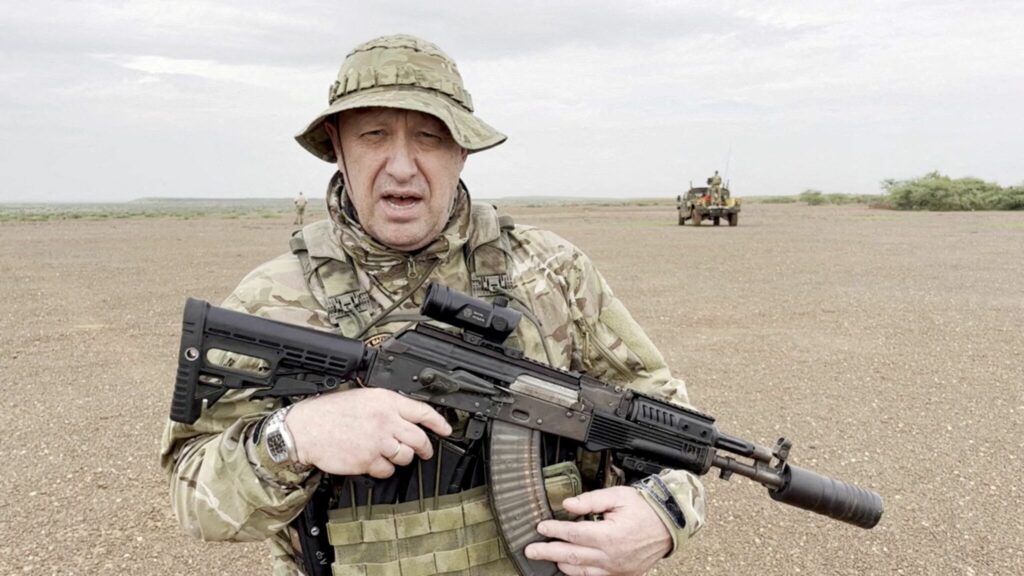
On the Ukrainian side, the continuation of the Russian occupation would mean an equally disastrous outcome, placing at least part of the Ukrainian population under the oppressive yoke of a foreign power. So what is there to negotiate? A peace in which Ukraine accepts the amputation of part of its territory? A peace where Russia forsakes its objectives and withdraws its troops? It is enough to ask these questions to realize that a negotiation between the two camps will only be possible when one of the two is unable to fight any longer. Calls for a ceasefire and negotiation between imperialists completely ignore the realities of this conflict.
Arms deliveries to Ukraine
One of the most contentious issues on the left is that of arms deliveries to Ukraine. Are we for or against these deliveries? And if we do not oppose the deliveries, are we not playing into the hands of Western imperialism and NATO? And wouldn’t that also amount to supporting the interests of the Ukrainian oligarchy against that of Russia, and thus betraying internationalism and socialism?
One way to solve this problem of not falling into the NATO trap, at least on the surface, is to take a strong stand against the invasion, but at the same time oppose the arms deliveries to Ukraine. This is the position of the PCF leadership, among others. The press releases from its national secretary, Fabien Roussel, insist on Ukraine’s “right to defend itself” against the invasion, but denounce the sending of ammunition and military equipment by NATO countries. This is designed to appear as a “balanced” attitude.
In reality, however, this position makes no sense at all. It amounts to accepting Ukraine’s right to wage war against the invader, but at the same time denying it the necessary means to do so. If Ukraine could no longer import weapons, that would give Putin a huge advantage. The argument put forward by the party leaders – and which is heard in different forms in the pacifist camp in Europe – is that the shipment of weapons to Ukraine will only “fuel the war” and contributes to mass killings.
Now, if it is true, in a sense, that the supply of weapons to Ukraine contributes to the violence, it is no less true that the non-supply of weapons would also contribute to the killings, in all likelihood, to a greater extent, given the massacres, abuses and destruction perpetrated by Russian forces in the villages and territories which fall under its control. An embargo on arms for Ukraine would not render the war less violent but would give a major boost to the Russian invaders.
The war leaves no room for “revolutionaries of the phrase”. Slogans and demands need to be measured against their concrete significance in the struggle at hand. Let us put ourselves in the place of the Ukrainian civilians who, amid all the unspeakable horrors of war, fearing for their lives and those of their children. Or in the place of those who have joined the armed forces, suffering losses day after day, to repel the invader. And let us imagine for a moment their reaction if they heard that anti-war organisations in Western Europe were opposed to the delivery of weapons to Ukraine, or if they learned that trade unions, following the instructions of their leaders and in the name of their opposition to NATO, were blocking the loading of arms and ammunition needed for the defence of the country. No worker in Ukraine would understand this position because everyone is aware that the import of military equipment is a vital to the fight against the invasion.
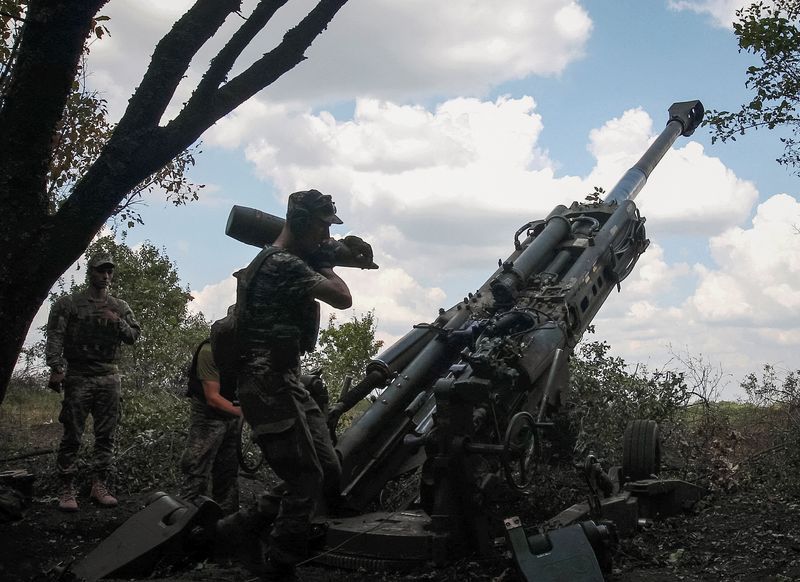
Stopping these imports of arms and ammunition would condemn Ukraine to defeat and occupation in the long run. This “pacifist” demand must therefore be put aside. On the other hand, this in no way prevents us from denouncing the cynical hypocrisy of the governments supplying military equipment. The support of NATO countries for Zelensky is obviously not disinterested. Their “help” is not free. Some of the supplies are purchased directly, but by far the most important form in payment, for the US and EU, are Zelensky’s commitments on Ukrainian reconstruction contracts, access to Ukraine’s natural resources, lucrative trade agreements, and strengthened military and strategic arrangements in their interests, once the conflict is over.
Class contradictions in wartime
These payoffs will make Ukraine increasingly dependent, both economically and militarily, on the great Western powers. To make foreign investments more profitable and defend the interests of the local oligarchy, the Ukrainian government will have to worsen the austerity policies that it has been applying for a long time, and further attack the rights and living conditions of the working class. The burden of rebuilding the country will fall on the workers, while large Ukrainian and foreign capitalist groups reap huge profits.
War brutally exposes the true relations between classes and the realities of capitalism. While the people suffer dangers and deprivations on a daily basis, the notoriously corrupt oligarchs who have enriched themselves both before and during the war, are comfortably installed in their villas, and lack for nothing. We must focus our war policy on these class questions within the war, rather than opposing the export of weapons. The question of the imperialist ambitions of the great powers and war profiteering in Ukraine must be linked to the need to expropriate the oligarchs, putting their businesses, their property and their financial resources towards the war effort and to help in the fight against social inequality. Thus, the conditions created by the war can be linked to the class struggle and to the need to put an end to capitalism.
The programmatic approach towards Russia cannot be the same as towards Ukraine. In Russia, opponents of the war, at the risk of brutality, prison sentences and even death, denounce the war and demand an immediate end to it, sometimes addressing an international audience with Stop the War! placards written in English. This is a perfectly valid slogan in Russia, but one that would not suit the Ukrainian people, for whom stopping the fight would mean enslavement to Putin. On the Russian side, this criminal war is of no benefit to the working people. Russian soldiers shed their blood only to expand the fortunes and privileges of the mafia oligarchy and its representatives in the Kremlin.
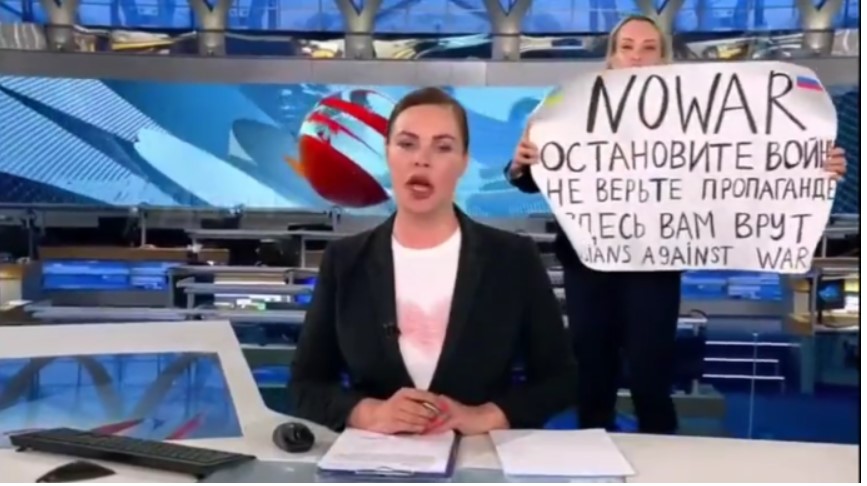
Internationalism and war
It is no secret that this war is not simply a conflict between two countries. It is part of a broader struggle between rival imperialist powers. The Russian invasion was an imperialist act on the part of Russia. Initially, Putin and his generals imagined that they could take the whole of Ukraine in a few weeks. They denied Ukraine the right to exist as an independent state. The aim of the operation was to absorb Ukraine into a new Russian empire.
On the other hand, American imperialism and the European Union have manoeuvred for decades to bring Ukraine into their sphere of influence, to the economic and strategic detriment of Russia. This strategy coincides with the interests of part of the Ukrainian oligarchy, currently represented by Zelensky, which seeks to enrich itself further through rapprochement with the West. Given its geographical position and considerable economic resources, Ukraine is a major stake in the struggle between rival imperialist powers. The Russo-Ukrainian war is an imperialist war on both sides.
From a socialist and internationalist point of view, it is inadmissible to support one capitalist oligarchy against another or to support one imperialist bloc against another. We defend the common interests of workers in Ukraine, Russia and all over the world, and are for an implacable struggle against capitalism and imperialism internationally. But this does not mean that we are “neutral” in this war, in the sense that we are indifferent to its outcome.
Declaring oneself “against war” or “for peace” is an abstract position. This amounts to simply wishing the war would cease to exist, that it should disappear. But it will not disappear, for the reasons we have explained. Asking for peace is one thing. Explaining under what conditions a just peace could be achieved is another. It seems to us that the central demand of our propaganda on this war should be that of “peace without annexations”. It was around this same slogan, adopted by the Russian revolutionaries of 1917, that opposition to the carnage of the First World War crystallised throughout Europe. In the Russian-Ukrainian war, this is a demand which could gather support by workers hostile to imperialism and the oligarchies on both sides. Its realisation would mean the withdrawal or expulsion of Russian armed forces from Ukrainian territory. Peace on any basis other than this would not be viable and would only be the prelude to a new war.
The fascist danger
Putin has tried to mask his imperialist objectives by presenting the war as “special operation” intended to “denazify” Ukraine. There are indeed fascists in Ukraine. But Russia has no shortage of them either. The Wagner Group battalions are no less than a fascist branch of the Russian armed forces which, as Putin has now publicly acknowledged, were and are financed and armed by the state. Contrary to Kremlin propaganda, Ukraine is not run by neo-Nazis. Zelensky is not a fascist. The fascist organizations that exist occupy only a relatively marginal place in Ukrainian political life. In the 2019 elections, for example, the National Corps party, associated with the Azov Battalion – a fascist militia now integrated into the Ukrainian armed forces – formed an electoral alliance with other fascist parties. The coalition received only 2.15% of the votes.
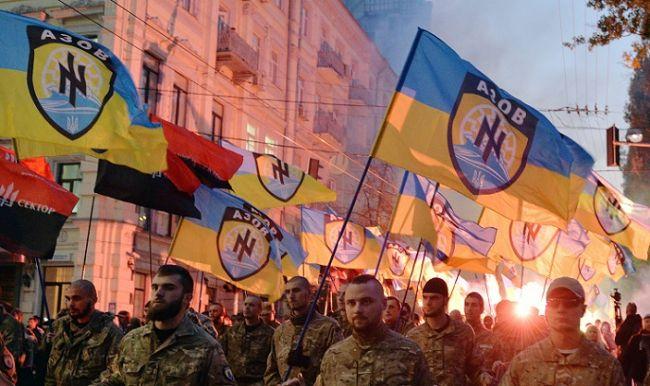
The idea that fascist organisations were the majority component of the “Euromaidan” movement in 2013 and 2014 is false. They participated in the demonstrations to try to manipulate them, but the Euromaidan was a massive and heterogeneous movement. In the context of serious economic recession, made even more serious by the sanctions and impositions (the demand for immediate payment of debts, import controls of some products) put in place by Moscow, hundreds of thousands of workers demonstrated against austerity measures, against the authoritarianism of the regime, and for the signing of an association agreement between Ukraine and the European Union, which in their eyes offered a possible way out of the social and economic crisis. As was to be expected, the United States and the European Union, for their part, sought to take advantage of this movement to weaken Russia. The movement grew so large that President Yanukovych fled, before being dismissed, dealing a blow to Russia’s interests in Ukraine.
While the social and political weight of fascist organizations in Ukraine should not be exaggerated, they nevertheless represent a major threat. The integration of fascist militias into the armed forces, and the presence of fascist elements within the police and in the state administration, constitute a serious danger for democratic rights and freedoms. Ukrainian fascists have often violently attacked union and anti-racist and feminist demonstrations with impunity. On March 8, 2018, for example, protests marking International Women’s Day were brutally attacked in several Ukrainian cities, according to an Amnesty International report. Zelensky, who presents himself in the media as a defender of the free and democratic world, tolerates the financing and arming of military units strongly marked by fascist ideology in the Ukrainian armed forces. In an interview with Greek television channel EPT (May 2, 2022), he defended the Azov regiment and denied that it was a neo-Nazi formation.
For Putin, the existence of fascist groups in Ukraine was only a pretext designed to fool public opinion – and Russian soldiers – about the real objectives of the invasion of Ukraine. However, in Ukraine as in Russia, the fascist danger must be taken seriously. The Ukrainian workers will have to struggle to achieve the disarming and dispersal all fascist elements inside and outside the army and police, and anti-fascist workers and soldiers on both sides will need to defend themselves against the fascist threat.
Conclusions
We have seen that the slogans calling for a ceasefire and the settlement of the conflict through diplomatic negotiations do not take into account the seriousness of the stakes of this war. A negotiation which would result in ratifying the amputation of part of Ukrainian territory would be a defeat for Ukraine, while a negotiation which would result in the withdrawal of Russian forces would be disastrous for the regime in Russia. It is difficult to see, in these circumstances, the usefulness of a ceasefire and what exactly there would be to negotiate.
Opposing the “diplomatic path” to that of war is a false opposition, in the sense that war, or the threat of war, constitutes in any case, in all serious international conflicts, the essential element of diplomatic negotiations. The UN and OSCE cannot resolve wars in which vital economic and strategic interests of the countries that dominate them are at stake. Asking both sides to discuss rather than fight is an illusory approach.
We need a policy which, based the concrete reality of war, seeks to expose the contradictory class interests on each side, challenging the oligarchies. The issues raised by war, whether they be economic, social or military, highlight the injustices and inequalities inherent in capitalist society in a more flagrant and brutal way than in times of peace. This is why imperialist wars carry within them the germs of social revolution. In the class struggles to come, the rise of fascist organisations is an extremely dangerous development.
The fratricidal carnage of the Russian-Ukrainian war is the product of capitalism and imperialism. The central plank of our wartime propaganda must be to explain to European workers, as well as to Ukrainian and Russian workers, that the only way to put an end to the horror of war, once and for all, is to put an end capitalism and imperialism.
[The original article, in French, can be found at the “La Riposte website – here]

